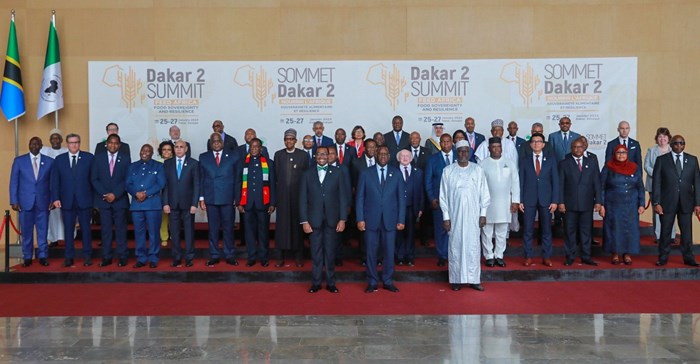The African Development Bank Group, will commit $10bn over the next five years to boost Africa's efforts to end hunger and become a primary food provider for itself and the rest of the world.

Source: Supplied.
This was announced by the bank group president, Akinwumi Adesina at the Dakar 2 Africa Food Summit in Diamniadio, east of the Senegalese capital of Dakar.
Adesina called on more than 34 heads of state, 70 government ministers, the private sector, farmers, development partners, and corporate executives to work out compacts that would deliver food and agriculture transformation at scale across Africa.
He encouraged them to take collective action to unlock the continent’s agricultural potential to become a global breadbasket.
The Dakar 2 summit - under the theme Feed Africa: food sovereignty and resilience - took place amid supply-chain disruptions caused by the Covid-19 pandemic, climate change, Russia’s invasion of Ukraine. More than a thousand delegates and dignitaries attended, including the president of Ireland Michael Higgins.
The government of Senegal and the African Development Bank group co-hosted the summit, eight years after the inaugural Dakar 1 summit where the newly elected Adesina announced the bank’s Feed Africa strategy.
Opening the summit, president Sall - who is also the African Union chairperson - said the time had come for the continent to feed itself by adding value and stepping up the use of technology.
Food sovereignty for Africa
Sall said: “From the farm to the plate, we need full food sovereignty, and we must increase land under cultivation and market access to enhance cross-border trade.”
The chairperson of the African Union Commission, Moussa Faki Mahamat said the Dakar summit was timely and would provide innovative solutions to help Africa become less dependent on food imports.
“Food sovereignty should be our new weapon of freedom,” Mahamat told the gathering. He urged development partners to work together within existing structures, such as Agenda 2063 and the African Continental Free Trade Area, for sustainable transformation.
Mahamat commended the African Development Bank for rolling out transformative initiatives, including a $1.5bn emergency food-production facility in 2022 to help African countries avert a potential food crisis following Russia’s war in Ukraine.
During the three-day summit, private sector players were expected to commit to national food and agriculture delivery compacts, to drive policies, create structural reforms, and attract private-sector investment.
Central bank governors and finance ministers were expected to develop financing arrangements to implement the food and agriculture delivery compacts, in conjunction with agriculture ministers, private sector players, commercial banks, financial institutions, and multilateral partners and organisations


























